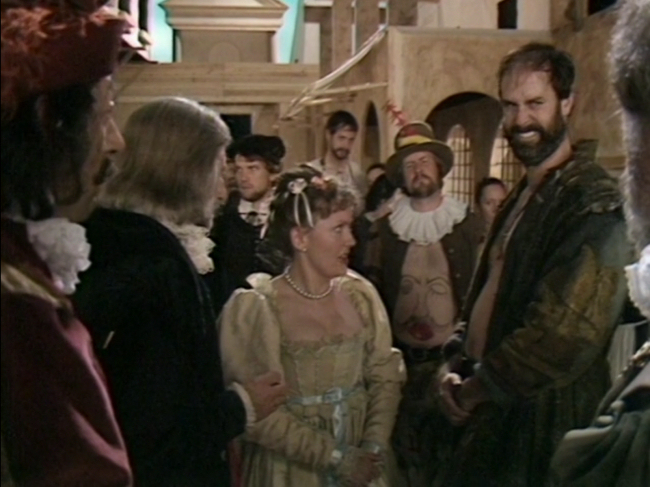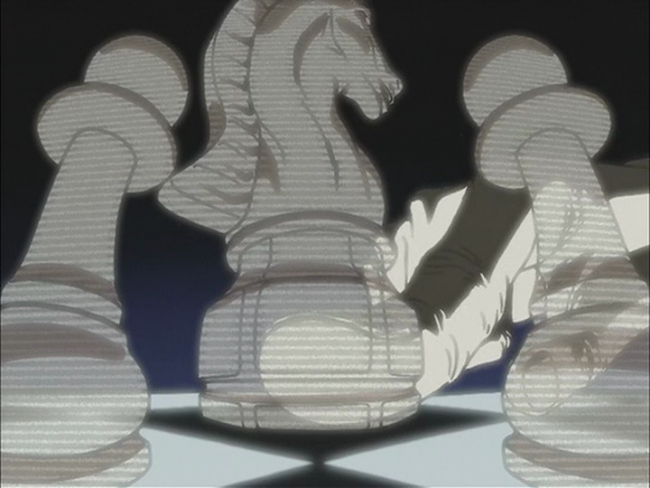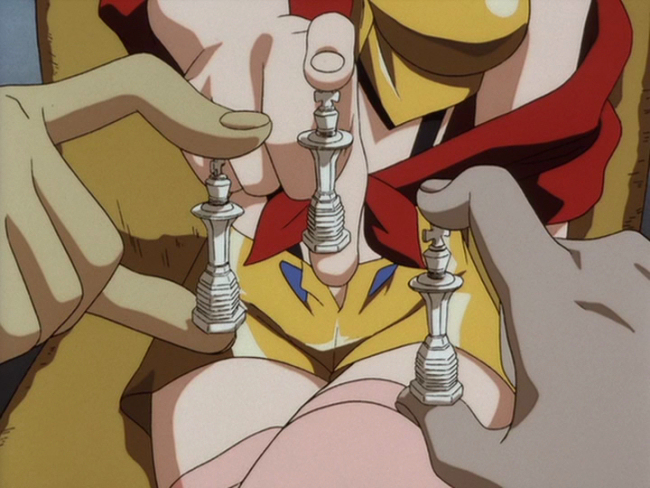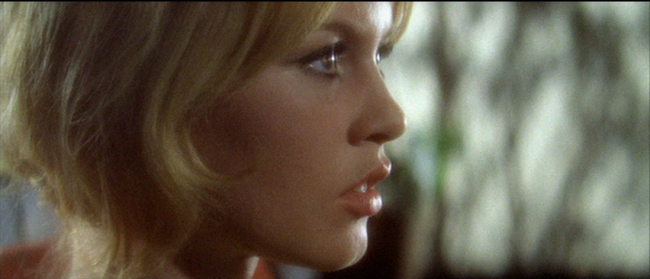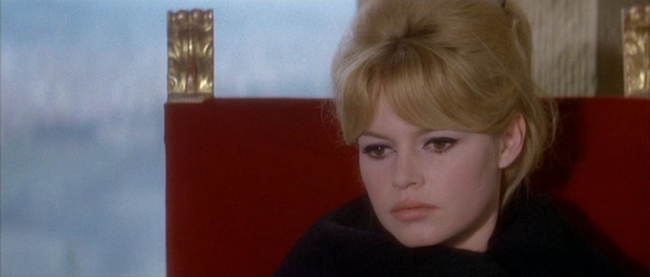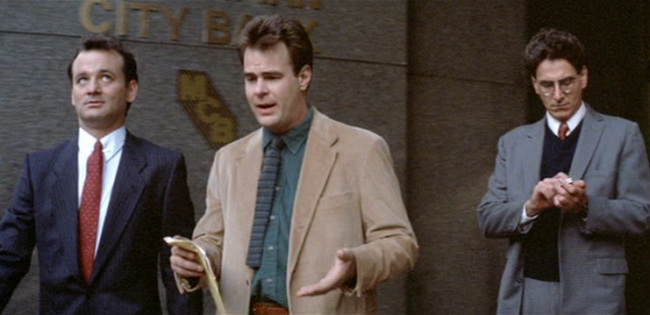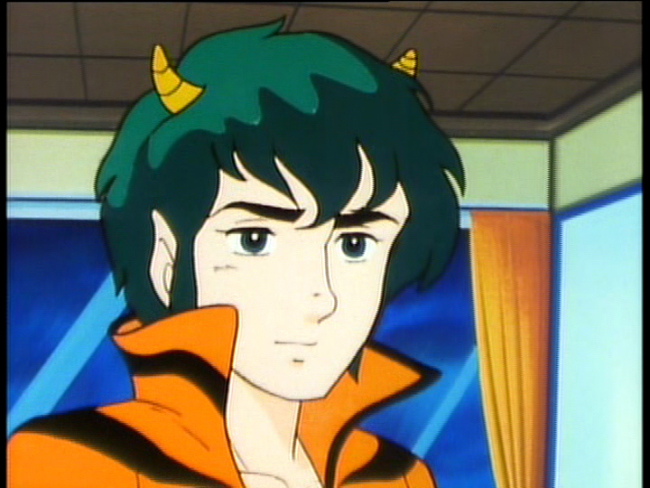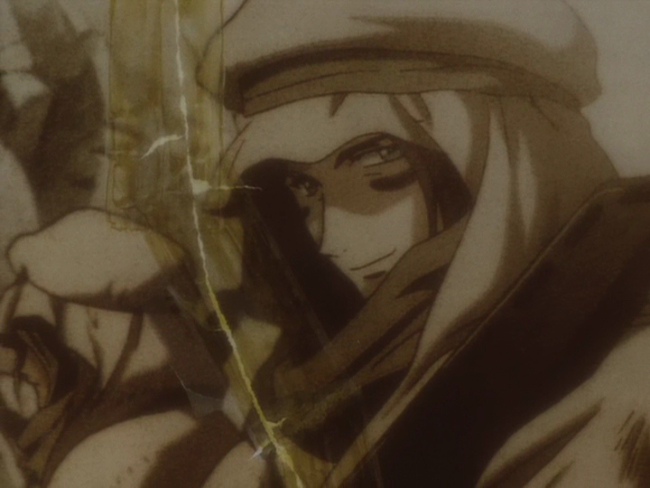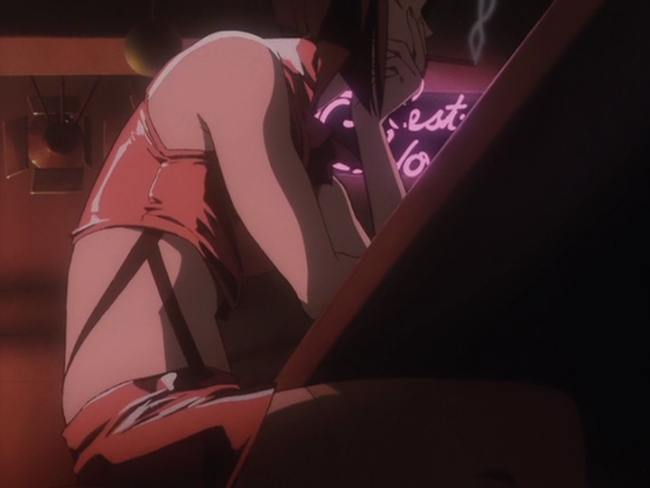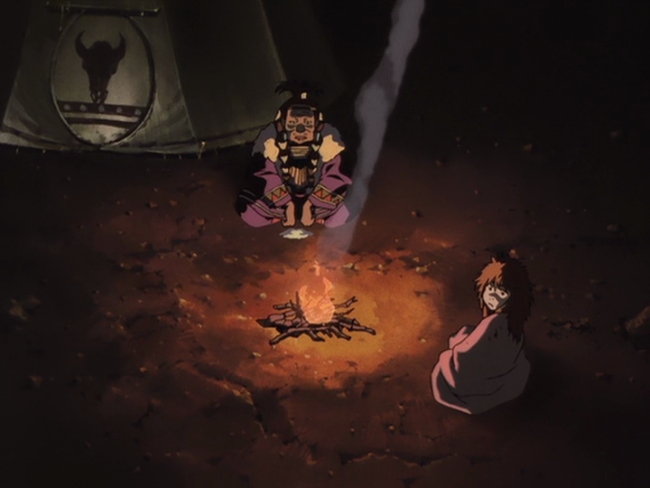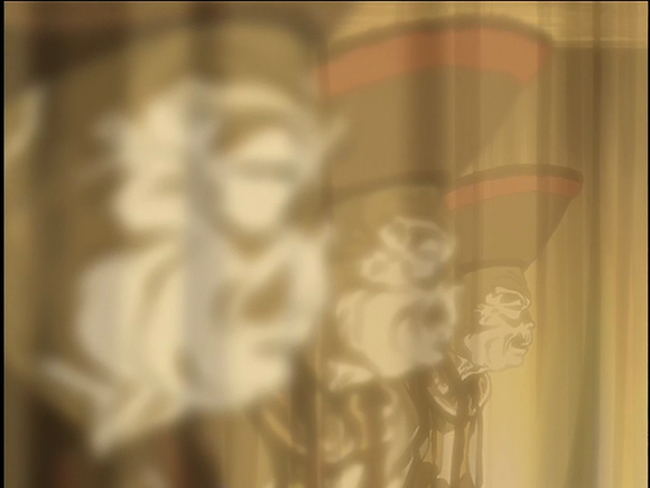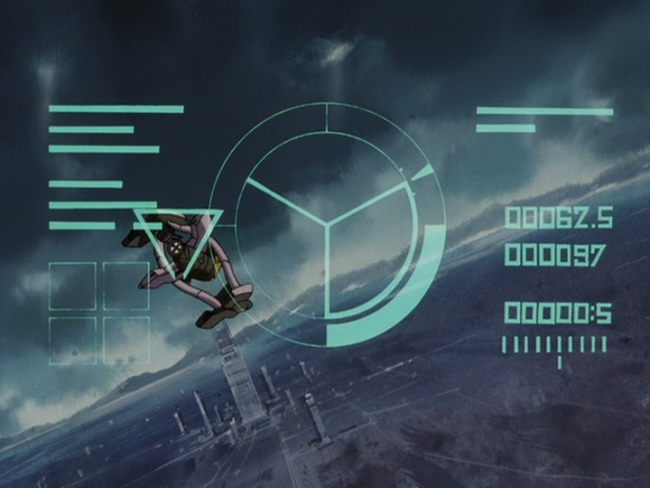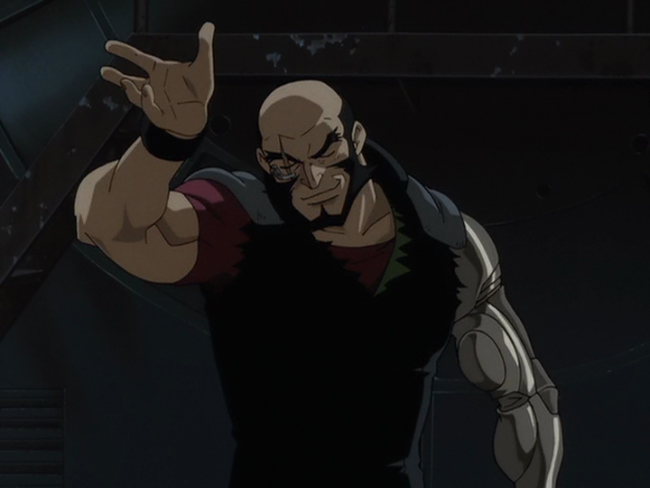
Would you believe this sweet, devoted young man with adoring eyes is a bloodthirsty pirate? Well, he's not, but he's supposedly the subject of Walter Scott's 1822 novel The Pirate which I finished a few months ago, and he's supposedly modelled on the infamous 18th century pirate John Gow. Scott declaws Gow and a whole lot of other things but it's not an altogether bad book. The real star, easily the most fascinating character, is called Norna of the Fitful Head.
Norna captured my attention early on--when I last wrote about this book back in April I said her "wonderfully gothic description" was the first really interesting thing to happen seven chapters into a book that had been mainly dry descriptions of Shetland with detached details of a young man, Mordaunt, and his friendship with two beautiful girls, Brenda and Minna. But Scott makes the atmosphere he conjured finally come alive starting in the fifth chapter with colourful scenes involving a horticulturist named Triptolemus and his sister, Baby. And that's where Norna makes her entrance. As the novel progresses, Norna isn't just the most mysterious or bizarre character, she's also the most psychologically complex. None of the other characters come close.
The main plot of the novel involves two families, the Mertouns and the Troils. Mordaunt's father, Basil, is gloomy and solitary, living at his castle. Magnus Troil, father of Brenda and Minna, is the landlord, or "Udaller". Mordaunt likes both of the girls but doesn't feel like he wants to marry either one. Then there's a shipwreck one day and Mordaunt rescues a man who calls himself Clement Cleveland. Cleveland quickly takes Mordaunt's place of favour at the Troil household where for reasons Mordaunt is not immediately able to discover everyone suddenly hates the young Mertoun. Cleveland harbours an unexplained animosity towards Mordaunt which he expresses more openly after he rescues Mordaunt--thereby repaying his debt--during a fantastically described communal attempt to kill a whale caught in a small body of water after an unusually high tide.
. . . the other boats had also pulled off to safer distance, and now, from these as well as from the shore, the unfortunate native of the deep was overwhelmed by all kinds of missiles,—harpoons and spears flew against him on all sides—guns were fired, and each various means of annoyance plied which could excite him to exhaust his strength in useless rage. When the animal found that he was locked in by shallows on all sides, and became sensible, at the same time, of the strain of the cable on his body, the convulsive efforts which he made to escape, accompanied with sounds resembling deep and loud groans, would have moved the compassion of all but a practised whale-fisher. The repeated showers which he spouted into the air began now to be mingled with blood, and the waves which surrounded him assumed the same crimson appearance. Meantime the attempts of the assailants were redoubled; but Mordaunt Mertoun and Cleveland, in particular, exerted themselves to the uttermost, contending who should display most courage in approaching the monster, so tremendous in its agonies, and should inflict the most deep and deadly wounds upon its huge bulk.
With two dashing young men and two beautiful women, you wouldn't be crazy thinking there was going to be a neat pairing off. I won't spoil who ends up with whom though it was spoiled for me because I happened to be reading George Eliot's 1872 novel Middlemarch at the same time and one of its main characters casually mentions the conclusion of The Pirate in demonstrating a point about what sorts of people are attracted to one another. That Eliot assumed everyone's familiarity and respect for The Pirate, one of Scott's lesser known works, goes to show the loftier place in literature Scott held in the 19th century than he does to-day. Certainly, I would argue Middlemarch is a greater work, certainly more psychological, though I wouldn't be surprised if Eliot's imagination was excited by Norna. I doubt she was much impressed by Brenda and Minna whose only interesting scene is one where they try to conceal their passions from each other about the men while also engaged in tightly lacing each other's corsets.
“I do not know what you mean,” said Brenda, colouring deeply, and shifting to get away from her sister. But as she was now undergoing the ceremony of being laced in her turn, her sister had the means of holding her fast by the silken string with which she was fastening the boddice, and, tapping her on the neck, which expressed, by its sudden writhe, and sudden change to a scarlet hue, as much pettish confusion as she had desired to provoke, she added, more mildly, “Is it not strange, Brenda, that, used as we have been by the stranger Mordaunt Mertoun, whose assurance has brought him uninvited to a house where his presence is so unacceptable, you should still look or think of him with favour? Surely, that you do so should be a proof to you, that there are such things as spells in the country, and that you yourself labour under them. It is not for nought that Mordaunt wears a chain of elfin gold—look to it, Brenda, and be wise in time.”
After Norna's great introduction, we get more descriptions that convey an impression of fascinating, awesome otherworldliness that seems out of place with the rest of the novel. When Minna becomes ill, her family takes her to Norna's impressive and strange abode.
The Burgh of which we at present speak had been altered and repaired at a later period, probably by some petty despot, or sea-rover, who, tempted by the security of the situation, which occupied the whole of a projecting point of rock, and was divided from the mainland by a rent or chasm of some depth, had built some additions to it in the rudest style of Gothic defensive architecture;—had plastered the inside with lime and clay, and broken out windows for the admission of light and air; and, finally, by roofing it over, and dividing it into stories, by means of beams of wreck-wood, had converted the whole into a tower, resembling a pyramidical dovecot, formed by a double wall, still containing within its thickness that set of circular galleries, or concentric rings, which is proper to all the forts of this primitive construction, and which seem to have constituted the only shelter which they were originally qualified to afford to their shivering inhabitants.
The novel is set in the late 17th century and Scott takes the opportunity to establish a culture clash on the remote island between its ancient inhabitants of Scandinavian descent and the new Scottish interlopers. This is largely manifested in a conflict between Norse mythology and Christianity with Norna's magic being founded on the former. The really remarkable thing about Norna as a character is in how Scott uses her as a point of conflict between the two belief systems. At first, on the surface, it seems as though Scott is simply operating from the point of view that, as a pagan, Norna would have to doubt herself because, to Scott, the Christian faith is too clearly the Truth.
In our days, it would have been questioned whether she was an impostor, or whether her imagination was so deeply impressed with the mysteries of her supposed art, that she might be in some degree a believer in her own pretensions to supernatural knowledge. Certain it is, that she performed her part with such undoubting confidence, and such striking dignity of look and action, and evinced, at the same time, such strength of language, and energy of purpose, that it would have been difficult for the greatest sceptic to have doubted the reality of her enthusiasm, though he might smile at the pretensions to which it gave rise.
As we learn more about the novel's increasingly unlikely plot about hidden and very fortuitous family relations, Norna's internal conflict of belief is discussed more. Her self-imposed solitude seems designed to deprive herself of human company and the attendant danger of diminishing her faith.
“There are those around us,” she said, “who must hear no mortal voice, witness no sacrifice to mortal feelings—there are times when they mutiny even against me, their sovereign mistress, because I am still shrouded in the flesh of humanity. Fear, therefore, and be silent. I, whose deeds have raised me from the low-sheltered valley of life, where dwell its social wants and common charities;—I, who have bereft the Giver of the Gift which he gave, and stand alone on a cliff of immeasurable height, detached from earth, save from the small portion that supports my miserable tread—I alone am fit to cope with those sullen mates. Fear not, therefore, but yet be not too bold, and let this night to you be one of fasting and of prayer.”
Later, when Mordaunt tries to confront her on her paganism in a point related to the plot, we get this really fascinating moment:
“Yes! you have touched on that dark suspicion which poisons the consciousness of my power,—the sole boon which was given me in exchange for innocence and for peace of mind! Your voice joins that of the demon which, even while the elements confess me their mistress, whispers to me, ‘Norna, this is but delusion—your power rests but in the idle belief of the ignorant, supported by a thousand petty artifices of your own.’—This is what Brenda says—this is what you would say; and false, scandalously false, as it is, there are rebellious thoughts in this wild brain of mine,” (touching her forehead with her finger as she spoke,) “that, like an insurrection in an invaded country, arise to take part against their distressed sovereign.—Spare me, my son!” she continued in a voice of supplication, “spare me!—the sovereignty of which your words would deprive me, is no enviable exaltation. Few would covet to rule over gibbering ghosts, and howling winds, and raging currents. My throne is a cloud, my sceptre a meteor, my realm is only peopled with fantasies; but I must either cease to be, or continue to be the mightiest as well as the most miserable of beings!”
“Do not speak thus mournfully, my dear and unhappy benefactress,” said Mordaunt, much affected; “I will think of your power whatever you would have me believe. But, for your own sake, view the matter otherwise. Turn your thoughts from such agitating and mystical studies—from such wild subjects of contemplation, into another and a better channel. Life will again have charms, and religion will have comforts, for you.”
She listened to him with some composure, as if she weighed his counsel, and desired to be guided by it; but, as he ended, she shook her head and exclaimed—
“It cannot be. I must remain the dreaded—the mystical—the Reimkennar—the controller of the elements, or I must be no more! I have no alternative, no middle station. My post must be high on yon lofty headland, where never stood human foot save mine—or I must sleep at the bottom of the unfathomable ocean, its white billows booming over my senseless corpse . . .'"
This stuff implies more about the trauma and feelings of guilt Norna has than Scott may have intended. It casts a shadow that elevates what would otherwise have been an improbable and sappy conclusion to the plot. When we learn about Cleveland's history as a pirate, supposedly based on John Gow, whose life in Captain Johnson's History of Pyrates is filled with blood and ruthless throat cutting, he turns out to be a laughably innocent and honest fellow. One of those bad boys whose every misdeed is magically the fault of some bad tempered and truly rotten member of respectable society. Amazingly, it does seem like Scott really didn't see what he had with Norna because the book's unsatisfying climax is all about Cleveland.
Twitter Sonnet #1148
A silhouette produced a rusted flail.
Component brains reduced the healthy lunch.
The empty grains consumed the rusty pail.
A group of swords were gathered in a bunch.
The desert curled into a waiting net.
A hall of watches checked the sally forth.
Increasing mobs of power lines abet.
The song began on August twenty-fourth.
A bank belief deploys a dollar ship.
In orbit gaps bespoke the absent moons.
Familiar eyes emerged from metal chip.
The airy guard contains the magic spoons.
A wavy wheel rebounds upon the tides.
Garages yawn and swallow gasless rides.

